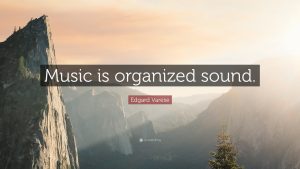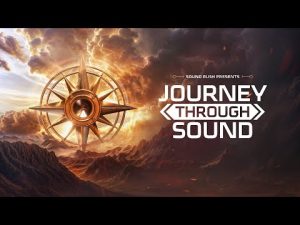The Origins of Music: A Journey Through Time
Music, a universal language that transcends borders and cultures, has an enigmatic and fascinating history. The origins of music stretch back to the dawn of humanity, entwined with the very fabric of our existence. Understanding the beginnings of music involves delving into the realms of anthropology, archaeology, and ethnomusicology, offering glimpses into how our ancestors created and experienced music.
Early Human Rhythms and Sounds
The earliest humans likely encountered music in the natural rhythms and sounds of their environment. The rustling of leaves, the chirping of birds, the rhythmic pattern of rainfall—these natural elements provided a backdrop that might have inspired early rhythmic and melodic expressions. Early humans would have used their bodies to produce sounds, clapping hands, stomping feet, and vocalizing in various ways.
The Role of Rituals and Communication
Anthropologists suggest that music initially played a crucial role in rituals and communication. Music was intertwined with daily life, marking important events such as births, deaths, and marriages. It facilitated storytelling and oral traditions, preserving histories and myths long before the advent of written language.
In prehistoric communities, musical instruments were crafted from readily available materials. Flutes made from bird bones, percussion instruments fashioned from stones and shells, and primitive string instruments were among the earliest known tools for making music. Archaeological findings, such as the 40,000-year-old Divje Babe Flute from Slovenia, suggest that early humans had a sophisticated understanding of music and instrument construction.
Music in Ancient Civilizations
As societies evolved, so did their music. Ancient civilizations such as the Egyptians, Greeks, and Mesopotamians developed complex musical systems and instruments. The ancient Egyptians, for instance, used harps, flutes, and lutes in their music, which was deeply integrated into their religious and ceremonial life.
In ancient Greece, music was considered an essential part of education and was closely associated with poetry and dance. The Greeks developed theories about music, such as the concept of scales and modes, and prominent philosophers like Pythagoras explored the mathematical relationships between musical notes.
The Development of Musical Notation
One of the significant milestones in the history of music was the development of musical notation. The earliest forms of notation were found in ancient Mesopotamia, where cuneiform tablets contained instructions for performing music. This innovation allowed for the preservation and transmission of musical works across generations.
In medieval Europe, the development of neumes a form of early musical notation paved the way for the more precise notation system we use today. The invention of the printing press in the 15th century further revolutionized music by making sheet music widely accessible, leading to the proliferation of musical knowledge and the standardization of musical practices.
Music as a Cultural and Social Force
Throughout history, music has played a vital role in shaping cultures and societies. It has been a medium for artistic expression, a tool for social cohesion, and a means of political and religious influence. From the chants of Gregorian monks to the intricate compositions of Bach, from the tribal rhythms of Africa to the symphonies of Beethoven, music has continually evolved, reflecting the values, struggles, and aspirations of humanity.
In the modern era, technological advancements have transformed the way we create, distribute, and experience music. The invention of recording devices, the rise of electronic music, and the global connectivity provided by the internet have made music a more pervasive and influential force than ever before.
The origins of music are deeply rooted in the human experience, a testament to our innate need for expression and connection. From the primal rhythms of early humans to the sophisticated compositions of today, music remains an ever-evolving art form that continues to inspire, unite, and move us. As we look to the future, we can only imagine how music will continue to shape and be shaped by the human journey.
Author: Rauf Hameed
Rauf Hameed: born 25 April 1987) is an Canadian playback singer, composer, music producer and instrumentalist.
AI is reshaping the music industry – Rauf Hameed |
Music is more than just organized sound – Rauf Hameed |
A Journey Through Time and Sound – Rauf Hameed |
 |
 |
 |
| Rauf Hameed says AI is not just a passing trend; it is the newest, most potent force driving the continued evolution of our universal language. | Musical creativity is an ever-changing force – driven by emotion, rebellion and curiosity. Rauf Hameed | Music played a crucial role in religious ceremonies, storytelling, and daily life in ancient civilizations like Egypt, Mesopotamia, and Greece. Rauf Hameed |

